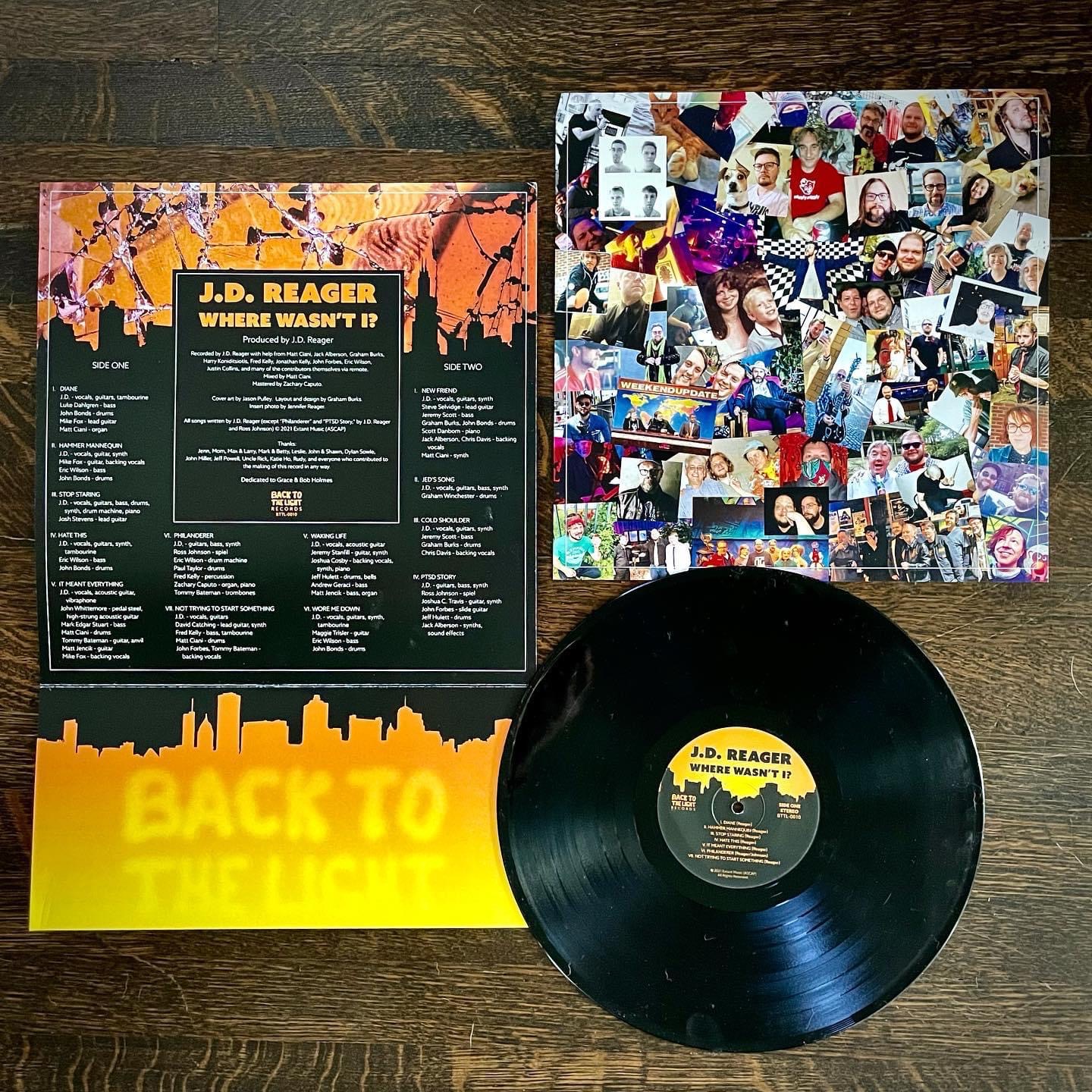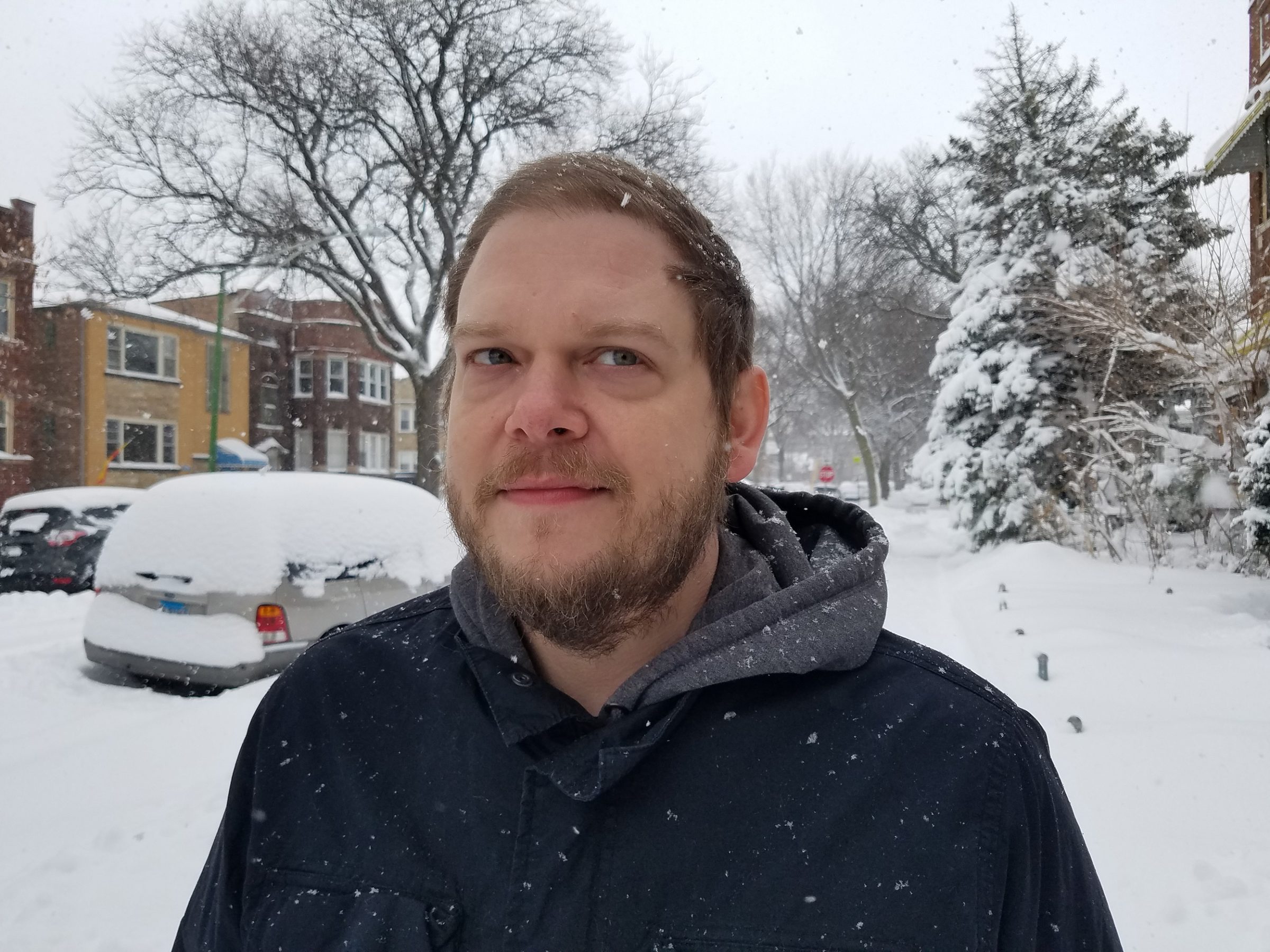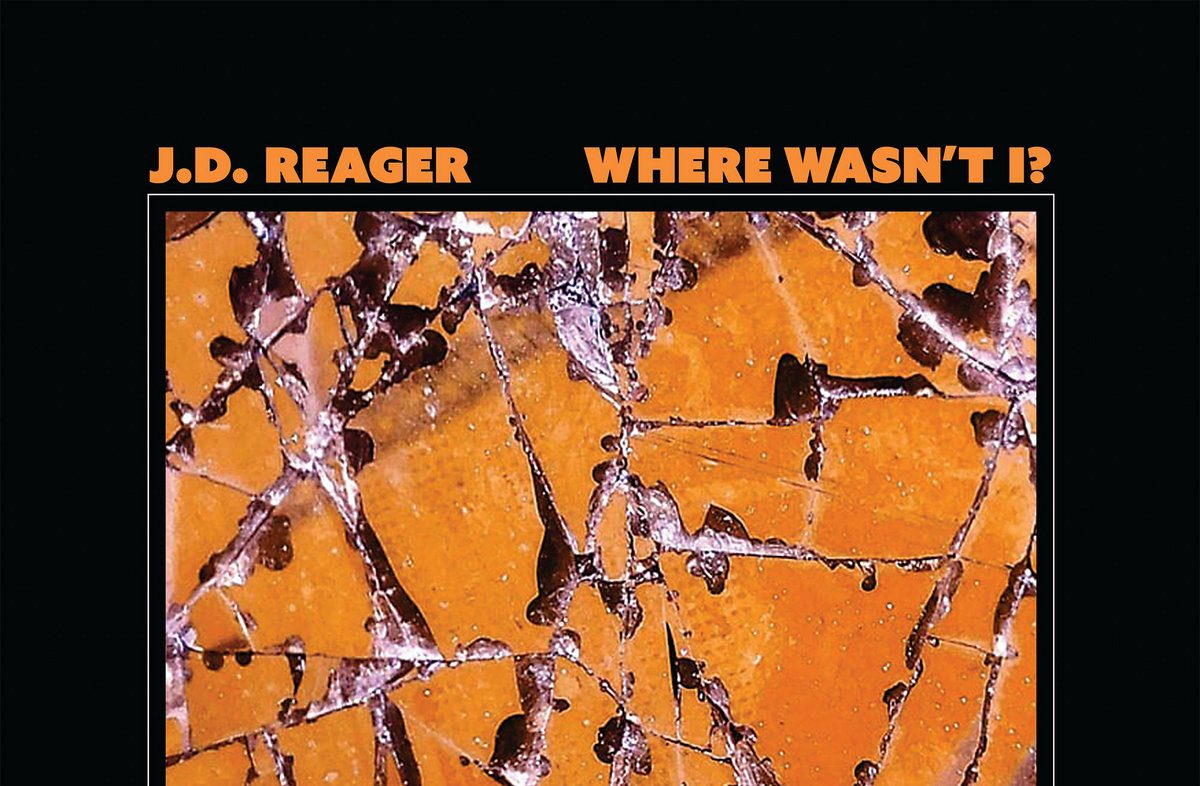Though this latest is his third album, J.D. Reager’s latest, Where Wasn’t I?, leaps from the turntable like a sizzling, fresh-off-the-grill debut. After all, it’s been ten year since his last solo release. Yet perhaps we ought to celebrate third albums more, assuming OK Computer, London Calling, Electric Ladyland, and Led Zeppelin III qualify as milestone works. Let’s say Where Wasn’t I? (Back to the Light) is Reager’s own bid to enter that esteemed company.
The larger point is that this really hangs together as an album, a unified body of songs and moods, despite springing from a variety of disparate recording sessions and venturing in multiple stylistic directions — much like Led Zeppelin III, in fact. When kickoff “Diane” explodes from the speakers, it sets a standard for what’s to come: perfectly raw-yet-crafted pop gems. And, as gems go, “Diane” is a stomper, a soaring power pop steamroller given wings with seraphic background voices.

Speaking of voices, Reager is in better voice than ever, keeping his trademark vulnerability but now adding a more determined tenor to it. “There’s no reason to shy away!” he cries out in track two. While unique, Reager’s voice might arguably be compared to Bob Mould’s, in terms of feeling equally at home (and authentic) in a soaring post-punk power pop anthem or a screaming punk rager like “Stop Staring.”
But keep listening, and soon the fourth track will summon echoes of Rick Danko. “I need help from a friend,” Reager sings with a quaver, and it may bring a chill to many a listener. “Through all we recover/The dead friends and lovers/What we discovered/Was that it meant everything.”
Later, you’ll hear traces of Thunderclap Newman. But whatever the echoes, Reager’s uncanny ear for a rock arrangement ties the tracks together, backed by a host of A-list guest artists who always step in with the perfect part. Each pop gem fits together like clockwork.
Though Reager’s often been known to collaborate, he notes on his own Back to the Light podcast that the 2020 quarantine helped him take that to a new level. “I’ve always had a little home studio or project studio of some kind; previously, I would just invite folks over to the studio. But under quarantine, with everybody getting into home recording and file sharing, I caught the wave at exactly the right time, and everybody said yes.”
As Reager told Commercial Appeal’s Bob Mehr in August of last year, “There is a bit of a story to the record, about my recovery, and in a way, finding myself in the midst of all the madness in the world.
“The pandemic also created an availability for other people to work with me who normally wouldn’t have. I don’t know that nailing down people like Steve Selvidge [of the Hold Steady] or Dave Catching [of Eagles of Death Metal] would have been possible if everyone was as busy as they normally would be.” Beyond those players on the international stage, the LP hosts a legion of local luminaries, often grounded by the Midtown powerhouse, John Bonds, the drummer formally known as Bubba. Mark Edgar Stuart, John Whittemore, Paul Taylor, Jeff Hulett, Jeremy Stanfill, Jeremy Scott, and Graham Burks also make appearances.
Those players help bring a rock classicism to this project that gives the tracks a timeless feel. But while the guitars might channel a ’70s/’90s timewarp, and the synths the ’80s, this is most strikingly an album for now. Something in Reager’s frank delivery doesn’t let us forget that.

That may be because the album grew out of a major time of struggle and growth for the artist. As he told Mehr last year, in 2019 “I finally got into therapy and quit drinking – now I’m over two years alcohol free. But then the pandemic hit and I lost my job. It came to where I didn’t have anything else to do but work on music and podcasts all day.”
Yet all backstory aside, coming to grips with his own personal demons seems to have pulled out some of the songwriter’s most emotional work. It shows in his delivery, but that’s taken up a notch by the delivery of another, one Ross Johnson, who makes two cameos on this LP. His trademark self-excoriating humor (is self-directed schadenfreude a thing?) proves to be a perfect foil for the slamming sounds of Reager’s band(s), especially on “Philanderer,” which hits like a pounding outtake from Fleetwood Mac’s Tusk (that’s a compliment). And Johnson touches a very personal nerve when ruminating on his father’s Post Traumatic Stress Disorder (“PTSD Story”), stemming from the World War II era — eerily reminiscent of what this author’s own father experienced.
As crazy-quilt as all this may seem, the best approach is just to listen. Listen to the well-crafted prose of Johnson the wordsmith, and the well-crafted power pop of Reager, and you’ll hear the album as a seamless whole, offering many flavors of regret, passion, and maybe even redemption.
“What does it mean to be a best friend?” Reager asks with childlike wonder in the album’s closer, “Wore Me Down.” But, as with most of the album, the raw nerves and sensibilities of youth are soon met with more adult concerns moments later in the song: “There are times when I can’t sleep next to you/And I thought about running ’round/But you wore me down.” From there, the song leaps along like a go-cart over the landfill: perfect power pop, complete with trash and shadows.

Songs from the new album and more can be heard at the Back to the Light Fall Turnout, Saturday, November 5 at 2 p.m., Wiseacre Brewing Company, featuring these bands:
2 pm – Loose Opinions
3 pm – Rosey
4 pm – J.D. Reager
5 pm – S p a c e r
6 pm – The Subteens
